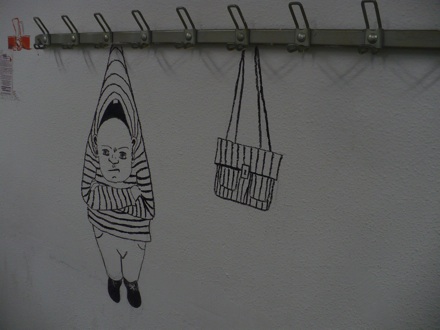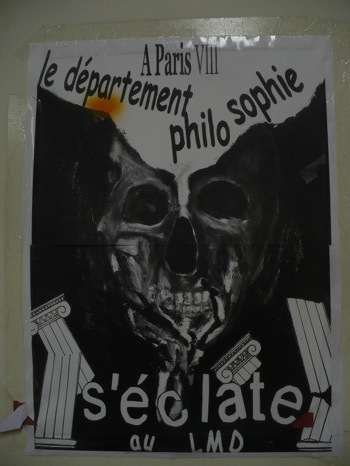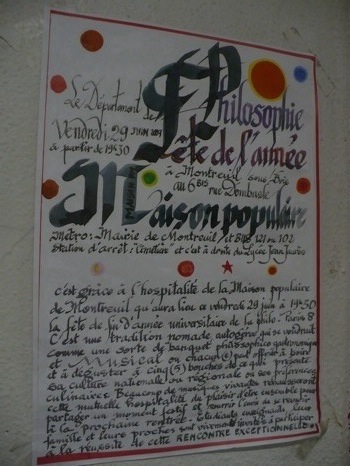I’m in the middle of shortening an essay for publication (on which more soon, I hope), which means I have the pleasure of excising all the interesting-but-peripheral tidbits. Here’s some text that used to be a footnote (retuned a little to make sense here).
One way of thinking about a classroom is as a place of knowledge transmission. From this perspective, it’s intriguing that classrooms often evoke an intriguing phenomena that involves, not knowledge-display or knowledge-transfer, but precisely their opposite, performances of ignorance or what might be called “negative knowledge.” Karin Knorr-Cetina has written, in examining the fixation on possible causes of error among experimental particle physicists, that “negative knowledge is not nonknowledge, but knowledge of the limits of knowing, of the mistakes we make in trying to know, of the things that interfere with our knowing, that we are not really interested in and do not want to know.”
It’s worth pondering whether this category applies to a sort of anxiety about knowledge that I’ve often seen in American grad school classrooms. What I’m thinking of is the kind of conversation where people drape their statements in a shroud of qualifications, qualifications that communicate no propositional content but nonetheless index the epistemological anxiety and low epistemic rank of the speaker. These phrases are all too familiar: perhaps, it seems, in a sense, it would seem to me, to some degree, kind of, sort of, it appears, arguably, I would argue that, on one level, I could be wrong but, you know, you might say, I’m not an expert but, umm, I don’t know anything about X but, etc., etc. Such awareness of fallibility can also appear as a kind of corporeal knowledge, in posture, gesture, and tone: nervous laughs, pulling at one’s hair, avoiding eye contact, and the like. I can remember times in my first couple of years of grad school when, at the very thought of talking, my voice shook and my heart beat wildly. And it’s often the least authorized, most institutionally peripheral and lowest-ranking participants who feel this way — which is to say, in short, that epistemic hierarchy in the classroom can get written onto academics’ bodies and flung throughout their conversation.
Continue reading “Negative knowledge in the classroom” →


